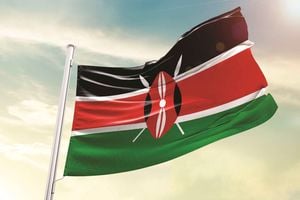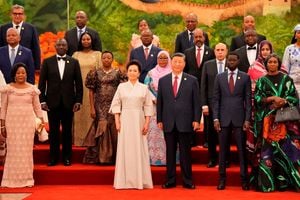
Hundreds of youthful demonstrators match along Moi Avenue, Nairobi during the Anti-government protests on July 23, 2024.
It’s been a heady and politically perilous time for Kenya the last two months. Suddenly, and without warning, a youth revolt erupted. The ostensible reason was the much-maligned Finance Bill. Some of us didn’t see it coming, and certainly not from that trigger or demographic.
The fuse of political and social uprisings, or revolutions, is usually lit by small, unexpected events. Let’s remember it was Mohamed Bouazizi, a Tunisian fruit vendor, who sparked the Arab Spring when he set himself on fire in 2010 after a state factotum refused to listen to him. More on this later. Kenya’s Gen Z revolt wasn’t that much different. Unlike the Arab Spring, the Gen Z revolt has quickly run its course — for the moment.
By all accounts, Mr Bouazizi, the Tunisian, was a good citizen. He was the sort of man they call a “working stiff” in America. Like Boxer in Animal Farm, George Orwell’s 1945 iconic political satire about communism, Mr Bouazizi put in long and hard hours at his craft. He got little sleep, trying to make ends meet. He’d pay his debts on time. On December 17, 2010, the police confiscated his scales because he was operating his vending cart without a permit. Without them, he couldn’t work anymore. A provincial governor refused to see him when he went to complain. In utter desperation, Mr Bouazizi self-immolated – set himself on fire on the street outside. He died two weeks later.
Symbol of defiance
Mr Bouazizi’s self-immolation was filmed and posted online. It went viral after it was picked up by international media. Mr Bouazizi became the symbol of defiance of the corrupt dictatorships of the Arab world. Everywhere, starting in Tunisia, common people lost fear of the dictatorships. The government in Tunisia fell. Even in Egypt, President Hosni Mubarak, the long-serving despot, was toppled by the Arab Spring. Scholars like myself thought that fundamental democratic change would come to the Arab world. It was not to be. Years later, the kleptocrats either clawed their way back into power, or were replaced by their ideological children. The people’s revolution died. Are there any lessons here for Kenyans, and especially the Gen Z?
First, there’s a major epochal difference between Kenya and most Arab states. Kenya, unlike those states, has always purported to live within the normative predicates of liberalism, even during the dark days of the KANU one-party state. They say that hypocrisy is the homage that vice pays to virtue. That’s why Kenya’s elite – which has never truly committed to, and internalised, democracy – holds on dearly to liberalism. That’s because of its ideological orientation towards the West, especially the United Kingdom and the United States. Since the reintroduction of multipartisym in 1991, and especially after the 2010 Constitution, Kenya has limped towards creating a democracy, though it retains deep-seated vestiges of illiberalism, impunity, a corrupt Judiciary, and an imperial presidency.
Second, whatever its flaws, Kenya still has one of the most open societies in Africa. While cartelism and serious gross human rights violations continue, Kenya has a vibrant press. Even the corrupt Judiciary on its best days holds the Executive accountable. Personally, I have written a column in Kenya’s leading dailies for decades and except for once or twice, my editors have never interfered with what I write. No one has ever told me what to write, even when I harshly criticised Jubilee’s Uhuru Kenyatta and refused to recognise him as President. I’ve criticised all of Kenya’s presidents, including Mr William Ruto, when I felt it was necessary. And as it is evident, I haven’t been disappeared yet.
Gen Z revolt
Third, the Gen Z revolt – much like the Arab Spring – burst open because of the imperviousness and pigheadedness of the state. The arrogance of the Executive and the Legislature burst open the dams of dissent. In the midst of penury among the youth and the dire straits of their parents, ministers and MPs lived large and opulently, often displaying unimaginable riches on social media. It was crassness, silliness, and tone-deafness that defied explanation and description. I’ve written before that ruling elites often foment revolutions against themselves. That’s what happened in the Arab world with the Arab Spring, and is what happened in Kenya with the Gen Z revolt. Enough was enough. The fear of the state was gone.
Lastly, even though the state and the political elite have doused the immediate inferno ignited by Gen Z by acceding to some of their demands, I would caution them not to rest easy, or revert to form. President Ruto himself has openly acknowledged things went awry with his first Cabinet. He’s saluted Gen Z for their constructive dissent. In my view, the only regrettable aspects of the protests was their infiltration by paid goons and violent detractors who looted property and the use of deadly force against peaceful protestors by police officers. The lesson to the elite is this – deepen democracy and grow an economy of inclusion, or else.
Makau Mutua is SUNY Distinguished Professor and Margaret W. Wong Professor at Buffalo Law School, The State University of New York. @makaumutua










